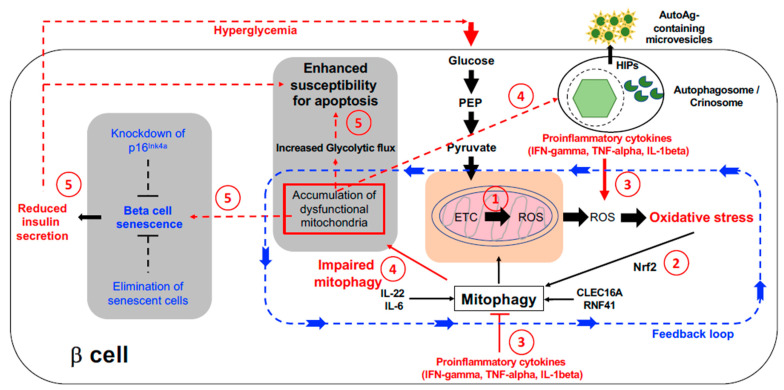Figure 1.
Possible contribution of mitochondrial dysfunction to beta cell failure in T1D. (1) Oxidative phosphorylation leads to Reactive Oxygen Species (ROS) production that can cause oxidative stress and lead to damage. (2) Oxidative stress triggers NRF activation and protective responses including an increase in mitophagy. (3) Exposure to proinflammatory cytokines or other pathogenic stressors will increase the level of ROS exposure that may then overload the detoxification machinery. (4) Impaired mitophagy will lead to accumulation of dysfunctional mitochondria and a global inhibition of flux through endo-lysosomal pathways which may promote the generation and/or secretion of immunogenic microvesicles containing autoantigens such as Hybrid Insulin Peptides (HIPs), forming a toxic positive feedback loop. (5) Over time the adaptive mechanisms to promote beta cell survival will become irreversible, resulting in beta cell dysfunction, increased senescence, reduced insulin secretion, and ultimately apoptosis. Solid lines indicate known pathways; dotted lines indicate putative pathways. Additional abbreviations: Phosphoenolpyruvate (PEP); Electron Transport Chain (ETC)).

